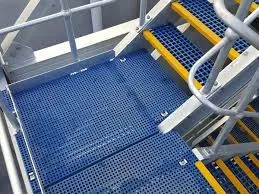
-
 Afrikaans
Afrikaans -
 Albanian
Albanian -
 Amharic
Amharic -
 Arabic
Arabic -
 Armenian
Armenian -
 Azerbaijani
Azerbaijani -
 Basque
Basque -
 Belarusian
Belarusian -
 Bengali
Bengali -
 Bosnian
Bosnian -
 Bulgarian
Bulgarian -
 Catalan
Catalan -
 Cebuano
Cebuano -
 China
China -
 China (Taiwan)
China (Taiwan) -
 Corsican
Corsican -
 Croatian
Croatian -
 Czech
Czech -
 Danish
Danish -
 Dutch
Dutch -
 English
English -
 Esperanto
Esperanto -
 Estonian
Estonian -
 Finnish
Finnish -
 French
French -
 Frisian
Frisian -
 Galician
Galician -
 Georgian
Georgian -
 German
German -
 Greek
Greek -
 Gujarati
Gujarati -
 Haitian Creole
Haitian Creole -
 hausa
hausa -
 hawaiian
hawaiian -
 Hebrew
Hebrew -
 Hindi
Hindi -
 Miao
Miao -
 Hungarian
Hungarian -
 Icelandic
Icelandic -
 igbo
igbo -
 Indonesian
Indonesian -
 irish
irish -
 Italian
Italian -
 Japanese
Japanese -
 Javanese
Javanese -
 Kannada
Kannada -
 kazakh
kazakh -
 Khmer
Khmer -
 Rwandese
Rwandese -
 Korean
Korean -
 Kurdish
Kurdish -
 Kyrgyz
Kyrgyz -
 Lao
Lao -
 Latin
Latin -
 Latvian
Latvian -
 Lithuanian
Lithuanian -
 Luxembourgish
Luxembourgish -
 Macedonian
Macedonian -
 Malgashi
Malgashi -
 Malay
Malay -
 Malayalam
Malayalam -
 Maltese
Maltese -
 Maori
Maori -
 Marathi
Marathi -
 Mongolian
Mongolian -
 Myanmar
Myanmar -
 Nepali
Nepali -
 Norwegian
Norwegian -
 Norwegian
Norwegian -
 Occitan
Occitan -
 Pashto
Pashto -
 Persian
Persian -
 Polish
Polish -
 Portuguese
Portuguese -
 Punjabi
Punjabi -
 Romanian
Romanian -
 Russian
Russian -
 Samoan
Samoan -
 Scottish Gaelic
Scottish Gaelic -
 Serbian
Serbian -
 Sesotho
Sesotho -
 Shona
Shona -
 Sindhi
Sindhi -
 Sinhala
Sinhala -
 Slovak
Slovak -
 Slovenian
Slovenian -
 Somali
Somali -
 Spanish
Spanish -
 Sundanese
Sundanese -
 Swahili
Swahili -
 Swedish
Swedish -
 Tagalog
Tagalog -
 Tajik
Tajik -
 Tamil
Tamil -
 Tatar
Tatar -
 Telugu
Telugu -
 Thai
Thai -
 Turkish
Turkish -
 Turkmen
Turkmen -
 Ukrainian
Ukrainian -
 Urdu
Urdu -
 Uighur
Uighur -
 Uzbek
Uzbek -
 Vietnamese
Vietnamese -
 Welsh
Welsh -
 Bantu
Bantu -
 Yiddish
Yiddish -
 Yoruba
Yoruba -
 Zulu
Zulu
fiberglass customized product
Exploring the Benefits of Customized Fiberglass Products
Fiberglass, a composite material made from fine glass fibers, has become a popular choice in various industries due to its lightweight, durability, and versatility. Customized fiberglass products, in particular, play a pivotal role in meeting the specific needs of different applications, ranging from automotive parts to sporting goods and construction materials. This article delves into the benefits of customized fiberglass products and their impact across several sectors.
Versatility in Design
One of the most significant advantages of fiberglass is its ability to be molded into complex shapes and sizes. Customization allows designers and engineers to create products tailored to specific requirements, enhancing functionality and aesthetic appeal. From unique machinery components to customized exterior panels for boats, fiberglass can be adapted to meet the varying demands of clients. This versatility enables industries to innovate continuously, leading to improved performance and user satisfaction.
Lightweight Yet Strong
When compared to traditional materials like metal or wood, fiberglass is notably lighter, which often translates into lower shipping costs and easier handling during installation. Despite its lightweight nature, fiberglass boasts impressive strength and resistance to environmental factors, making it an ideal choice for outdoor applications. Customized fiberglass products can be engineered to withstand harsh conditions, whether it’s high humidity, saltwater exposure, or extreme temperatures. This durability means longer life cycles for products, reducing the need for frequent replacements.
Cost-Effectiveness
fiberglass customized product

While the initial investment in customized fiberglass products may be higher than traditional materials, the long-term benefits often result in significant cost savings. Fiberglass is resistant to corrosion, reducing maintenance costs over time. Additionally, the lightweight nature of fiberglass can lead to lower transportation and installation expenses. For many businesses, the personalized approach to fiberglass solutions balances upfront costs with ultimate savings over the product's lifecycle.
Sustainable Production
In today’s eco-conscious landscape, sustainability has become a crucial factor in manufacturing processes. Fiberglass can be produced with recycled materials, and the process typically generates less waste compared to other materials. Custom manufacturers are increasingly adopting sustainable practices to meet consumer demands for environmentally friendly products. By opting for customized fiberglass solutions, businesses can not only enhance performance but also contribute to sustainability efforts.
Aesthetic Appeal
In addition to functionality, customized fiberglass products can be designed with aesthetics in mind. The material can be easily colored and finished to meet visual standards without compromising integrity. This characteristic is especially beneficial in industries like architecture and interior design, where appearance is just as important as performance. Customized designs can blend seamlessly with various themes and styles, creating visually appealing spaces that also leverage the advantages of fiberglass.
Conclusion
Customized fiberglass products represent a significant advancement in materials technology, combining performance, durability, and aesthetic flexibility. As industries evolve and the demand for specialized solutions grows, fiberglass continues to stand out as a versatile option. Whether in the automotive sector, construction, or consumer goods, the ability to create tailored solutions from fiberglass is a game changer. By embracing customization, businesses can enhance their offerings, drive innovation, and ultimately improve customer satisfaction. As the future unfolds, the potential for customized fiberglass solutions appears boundless, paving the way for a more efficient and sustainable approach to manufacturing.









